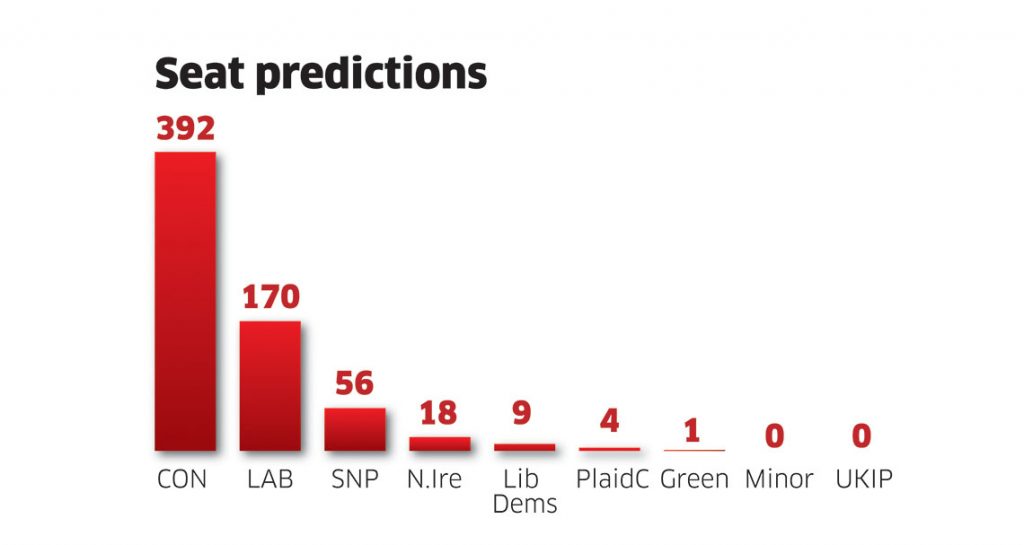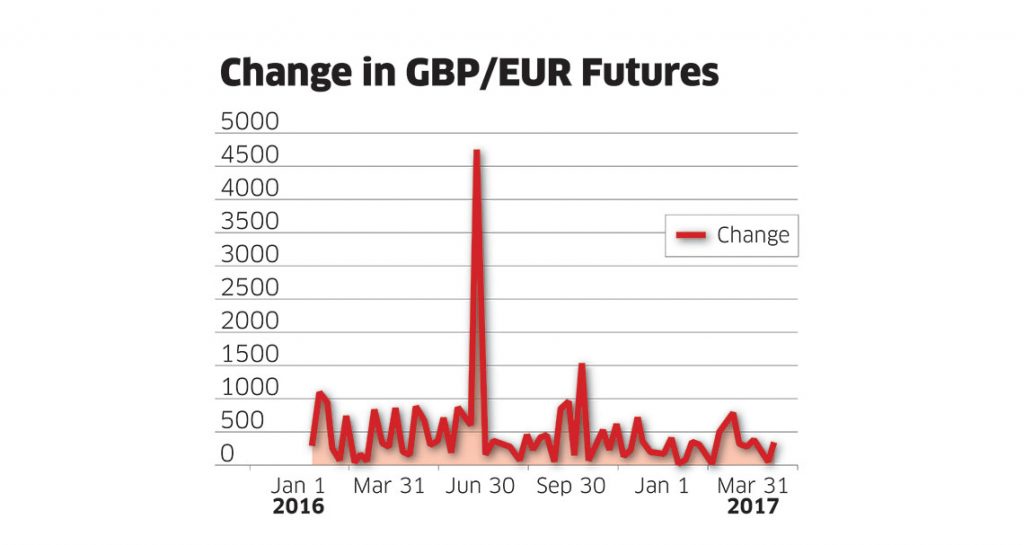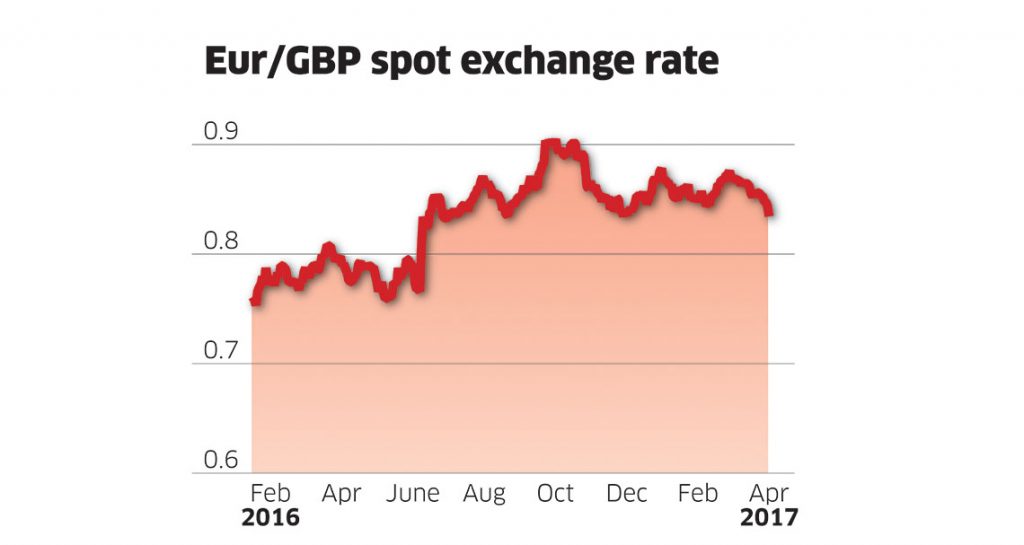In the wake of Britain's snap election, Ireland's ability to adjust in the face of uncertainty like this is probably our greatest asset
Politics is about decisions, and when you decide, you must divide. British prime minister Theresa May last week decided to call a snap election more than 1,000 days before she was required to by law, simply because the polls told her she could. Today, May faces a divided House of Commons and commands a slim majority of only 17 MPs.
She is defeated in the House of Lords semi-regularly. She knows she will need more support to push through the tough times that Brexit will surely usher in for the denizens of Perfidious Albion and their Irish cousins across the sea. And so to the ballot boxes they go.
I like that old trope ‘Perfidious Albion’ as a piece of language. It’s a pejorative that dresses up the idea that the British are sneaky and treacherous in fancy language. A famously chubby Frenchman on the losing side of an engagement with the sneaky Brits in the 19th century is the supposed father of the slur, so it’s usually used in the context of international affairs.
Personally, I think the British are a great people, who created the industrial revolution and gave prosperity to more than a quarter of the planet, but I must admit I can’t resist a good phrase, especially when it is loaded with history.
The ‘Albion’ part comes from a story of England’s creation. More of a founding myth, the story goes that before there were men, before the Romans came to conquer, there were the denizens of Albion, the ancient name for the island of England, Scotland, and Wales. The denizens of Albion were descended from giants, the sons and daughters of Albina, a Greek princess who, to put it mildly, had notions about her.

Albion was a land of giants, soldiers from the Trojan war, and even dragons before the Romans came. As founding myths go, it’s pretty cool. The defeated Frenchman’s slur conjures an image of greatness in the blood, of nobility and magic, along with treachery in dealings with those not of the island of Albina.
On September 3, 2016, the British prime minister swore a hole through a copper pot that there would be no snap election. Speaking to the BBC’s Andrew Marr, she said: “I’m not going to be calling a snap election. I’ve been very clear that I think we need that period of time, that stability, to be able to deal with the issues that the country is facing and have that election in 2020.”
Perfidious Theresa
The electoral logic is simple, and as much of a calculated gamble as you can get in politics. The polls, which readers of this column know to take with a barrel of salt, not a pinch, translate into a resounding Conservative victory.
If the current polls were reflected on polling day, they would return over 390 seats for an enormous Conservative majority of well over 100 MPs. It would be an imperial moment for the Conservative Party from 2017 to 2022. Labour, already weak and divided with a deeply unpopular leader, would be decimated. Jeremy Corbyn, probably the Conservative Party’s greatest electoral asset, would be removed. The Liberal Democrats would feast on Labour’s guts, as would all the smaller parties.
May’s message is very simple: we must negotiate the best Brexit deal. The EU will surely come at us hard. Give us a strong hand, the other crowd are messers you wouldn’t put in charge of a shop till, never mind a country. She calls them the ‘coalition of chaos’. That’s an ungainly phrase but it does get across the idea that Labour plus the Scottish Nationalist Party plus the Liberal Democrats plus the kitchen sink is all that stands as an alternative to the Conservative hegemony, and the times ahead are going to be rough.
That her party created the conditions of uncertainty and the rough times ahead that she now stands to benefit from electorally is beside the point, and is not mentioned.
The right-wing press are strongly on May’s side. The Daily Mail, once a fascist mouthpiece, now brands those who side against May as “saboteurs”. “Crush pro-EU saboteurs, PM,” advises the Sun. The language used by the newspapers echoes revolutionary Leninism which advances the idea of an authoritarian vanguard, and so is the imagery. Cartoons of May show her cut from granite, or made of metal.
MP Jo Cox was killed by a man reacting to language and images like that on June 16, 2016. That’s how this campaign starts, with talk of saboteurs and unity, of sovereignty and the world ending in chaos if Theresa isn’t given her imperial half-decade. Rhetorically, British election campaigns only go one way: down. I’m genuinely scared to see what depths this one will plumb after last year’s Brexit referendum.
Perhaps acknowledging the rhetoric was likely to get some of them hurt, MPs from all parties piled opprobrium on the Daily Mail. There aren’t enough zeroes after the decimal point to estimate the chances of the paper’s language moderating.
Friedrich von Hayek, not my favourite thinker, got it bang on when writing about the connection between xenophobia and authoritarianism. “The contrast between ‘we’ and ‘they’”, Hayek wrote, “the common fight against those outside the group, seems to be an essential ingredient . . . [for] the unreserved allegiances of huge masses. From [the authoritarian’s] point of view it has the great advantage of leaving them greater freedom of action than almost any positive programme”. May’s first stump speech sought to portray the election as an ‘us’ versus ‘them’ moment in British history, and it is freedom of action she is working to secure.

May’s decision is being spun as good news for Ireland. This is a mistake. The idea is that, somehow, Ireland will benefit from Perfidious Theresa because she will be able to force through a moderate Brexit, one with some limits to migration, and some tariffs and levies, sure, but not a full-blown ‘hard’ Brexit.
The logic is that May’s re-election is good for Ireland because she will have the strength internally in her party to allow concessions on things like migration and pension payments to the EU. The hard-line Brexiteers won’t be able to touch her. Ireland will benefit from a softer Brexit as we still trade large amounts with Britain. There’s a charm to the idea, and a certain logic, but it is a fiction, like ‘soft landings’ we were all going to have in 2007 and 2008. At least five arguments militate against this line of magical thinking.
First off, more Brexit hardliners will be elected to the Palace of Westminster, not less. There will be over 300 of them, all pledged in their manifestos to implement Brexit. Second, May has political cover for any Brexit-related result, and so crashing out of the customs union, the single market, the passporting regime for financial services, all of it, can be sacrificed on the altar of a pure break, simply because a mandate can be claimed for it. Third, Britain is not the entity with the power in this negotiation. It is the EU, and the election does not change the calculus of power in any way. Fourth, while her officials get the Brexit negotiation process up and running, May is wasting months of negotiating time. Fifth, the election exposes everyone to yet more uncertainty.
This macroeconomic uncertainty is usually expressed quickly through the febrile exchange rates between sterling and the euro, shown in the figure with the axis starting 0.75 euro per British pound to show the changes more clearly. The chart starts from the first day of 2016 to show how quickly things can change. Last Thursday saw the British pound to euro exchange rate fall from its 2017 highs as traders sold their sterling in profit-taking. The euro benefited a bit from the latest French presidential election polls showing a slim lead for pro-business and pro-EU Emmanuel Macron.

Only one in four Irish companies hedge their currency exposure, meaning their slim margins are likely to disappear if sterling falls further. A fall in sterling does three things. It increases the cost of Irish goods going into Britain and increases competition on Irish shelves from British products. A fall in sterling drives retail activity of Irish consumers cross-border and, especially, online.
Brexit may well mean a permanently weaker sterling, and this means the only way to increase profit margins will be to drive down costs, diversify into other markets, or seek state supports of some kind. In addition to the permanently lower level, the currency will be more volatile. This means signing a contract on a Monday may be very different from signing the same contract on a Friday.
The figure shows the change in the futures market for sterling relative to euro. A futures market sells commodities for delivery in the future. You buy €100 worth of British points and get it delivered in a month to you, but at today’s price. A futures market is a way of offsetting some of the movements in the currencies you’re trading in. These markets have existed for centuries.
The chart shows you a monthly futures market. Bigger movements imply more uncertainty. No prizes for figuring out what the big spike is. The snap election brought back a smaller version of that kind of uncertainty again.
So this is where Perfidious Theresa has left us. Volatility, uncertainty, and the prospect of a hard Brexit nearer, not further away. Her benefit, our cost. Negotiations in the North are at a standstill and await the election results, but it is unlikely the peace process figured much in the decision to go hard for a greater parliamentary majority. The 2017 election will be the North’s fourth election in two years, not including the EU referendum.
The election results come with high stakes for the residents of Northern Ireland. In the event of direct rule, Northern Ireland will end up relying on a fractured minority of politicians to stand up to an imperious Conservative government that has given it no indication of having a post-Brexit plan which takes the welfare of Northern Ireland into account, some 56 per cent of Northern Ireland voted to Remain in the EU last June, and it is clear they will be stuck with a hard Brexit to implement.
In the Republic, our ability to adjust in the face of uncertainty like this is probably our greatest asset. Tiny open economies like Ireland must adjust to fit the world. It won’t fit us. The sectors most in Brexit’s firing line need a range of supports to access markets, and Enterprise Ireland is the agency to deliver this. It needs resources on tap from the government now and in the next budget, and on an all-island footing. That’s the right decision to make for Ireland, and probably the only positive decision we can make in any case. May, meanwhile, will get to decide what she thinks is best for Albion until 2022.
